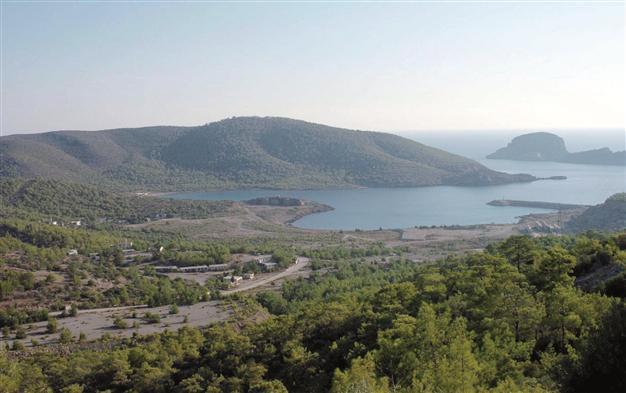Environmentally disputed Turkish nuclear plant project vows to protect seals, turtles
MERSİN - Cihan News Agency

Turkey’s first planned 4,800 megawatt (MW) plant, being built by Russia’s Rosatom, is already falling behind schedule, with the first reactor unlikely to be operational by 2019 as planned. Most of the locals are against the construction of the plant. DHA Photo
A controversial environmental assessment report for the Akkuyu nuclear plant in the southern province of Mersin has vowed to protect Mediterranean monk seals and loggerhead sea turtles living in the sea near the plant, the water of which will be used to cool the plant’s reactors.The 3,600-page Environmental Impact Assessment (ÇED) report, which had to be revised after being returned three times over the past two years, states that the water needed to cool the four-reactor plant will be supplied from Mediterranean Sea and will be poured back to sea, but claims that this process does not pose any danger to any species living in the habitat.
Turkey’s first planned 4,800 megawatt (MW) plant, being built by Russia’s Rosatom, is already falling behind schedule, with the first reactor unlikely to be operational by 2019 as planned.
The latest ÇED report penned by Rosatom, which requires approval from Turkish authorities, was submitted to the Environment Ministry in April for the fourth time. The ministry has been keeping the report under wraps for the past two months, drawing concerns from environmentalists.
The report stated that the spread and distribution of cooling water in the sea will be carried out according to a three-dimensional “Hydrodynamic Convection Model,” prepared by a scholar at Ankara’s Gazi University.
According to this model, the discharge of the cooling water is predicted to cause a rise in water temperature of 0.5 degrees Celsius at the most.
“The 0.5-degree heat increase that will arise according to this modelling study will not cause any negativity for various species such as phytoplankton and algae, the zooplankton population crucial for local fishing, the food chain and seals,” the report read.
It also claimed that the cooling water will be discharged into an area distant from the Beşparmak Island where Mediterranean monk seals live, also pledging a roadmap to ensure that species in the region will remain unharmed from the presence of the nuclear plant at the region.
“An observation plan for the Mediterranean monk seals will be established in the design and construction stage. The seal production indexes, housing conditions and populations levels will be examined,” the report vowed, also promising to provide the same controls for loggerhead sea turtles living at the area.
“Patrol controls will be carried out in the region for these animals and veterinarian service will be provided if needed,” it read.
The personnel to work at Akkuyu NGS, the company established by Rosatom to operate the plant, will be also trained to increase awareness over marine fauna species’ protection.
According to the intergovernmental agreement between Turkey and Russia on the construction of the nuclear plant, a project company was established in 2011 in the form of a joint stock company, the shares of which are initially 100 percent owned directly or indirectly by the companies authorized by the Russian side.
The start of construction for the plant is scheduled for mid-2015. By 2023, all four planned reactors are planned to have started generating power, but the project still has to obtain a construction license and has been hampered by a number of other delays.
















